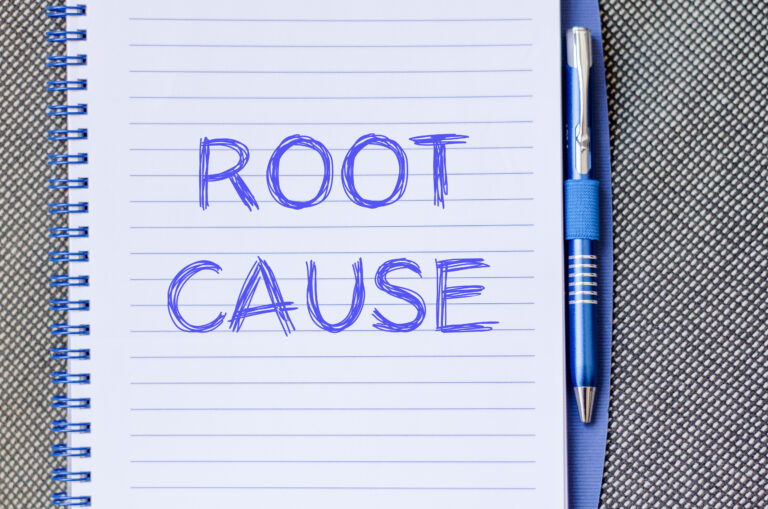
Whodunnit??? A story of a psychiatric murder/suicide

DR ARUNA
Holistic Psychiatrist

Who is the murderer? the patient? the psychiatrist? the pills & big Pharma? the system? – A strong argument for a paradigm shift in current psychiatric practice
In February 2022, I received an email in my inbox from my professional liability company. The email described a legal allegation made against a psychiatrist and the verdict. As a psychiatrist myself, my interest was piqued and I read through it. Only to find myself deeply sad and disturbed. Here is the case I copied verbatim followed by my thoughts, my interpretation about what happened to this gentleman, how I would have treated him and my suggestions for how to avoid such tragedies in the future. I am intentionally italicizing my response to differentiate from the case vignette.
The case vignette begins below:
February 2022. The Allegation: A psychiatrist negligently failed to diagnose and treat the patient’s medical/psychiatric conditions, which resulted in his suicide and the death of his wife and two children.
The Case: A 71 Year Old Male (5’7”, 199 lbs.) patient presented to a psychiatrist with complaints of a six-month history of insomnia, low energy, depression, confusion, memory problems, headaches and a 50-pound weight loss. He reported that after a 50-year history of daily alcohol intake, he had stopped drinking a year ago. His medical and surgical history included a hiatal hernia, diverticulitis, arthritis, GERD, hyperlipidemia, BPH, basal cell cancer, prostate cancer, diabetes, forgetfulness, and chronic fatigue. The patient’s current medications included Lipitor 40 mg, Tricor 145 mg, and Protonix 40 mg. In the past, his primary care physician had prescribed Celexa, Zoloft, Paxil, Cymbalta, Klonopin and Xanax for depression and anxiety. The patient no longer took any of these psychiatric medications because they were either ineffective or caused nausea. The psychiatrist believed the patient met criteria for a major depressive disorder and anxiety. He prescribed Wellbutrin XL 150 mg daily and Ativan as needed if he had severe insomnia, anxiety, or panic attacks.
The first paragraph of the case vignette ends here. Let’s see how I would formulate the presentation.

So, this patient presents with a long history of alcoholism, medical/surgical history, prior history of failure to respond to various psychiatric medications, is on multiple medications for his medical conditions; and this psychiatrist’s response is to present a diagnosis of Major depressive disorder and anxiety and prescribe an antidepressant and a benzodiazepine!!! Now, mind you, this is considered standard psychiatric practice and is in fact blessed by the powers that be.
What is wrong with this scenario?
1. Psychiatric diagnosis is atheoretical – meaning one can make a diagnosis of a major psychiatric condition simply based on the presenting signs and symptoms and treat it without an understanding or explanation for “why this patient is experiencing these symptoms at this time in their life?” “Why” the Holy Grail question of any medical discipline is completely ignored by mainstream psychiatry.
2. This psychiatrist appears to have completely ignored the preceding medical, surgical history and directly went to sympotamatic diagnosis and started to treat it. In my view, this is similar to say, you develop persistent fever out of nowhere and your doctor says to you, “oh! you have fever, here take some tylenol.”
3. I would say this psychiatrist even ignored the preceding addiction history, a long one at that! At the very least, protracted withdrawal syndrome (whose prominent features are depression, anxiety, insomnia) should be considered in anyone recovering from a long standing addiction and attempt to treat that first. Which would include evaluating for vitamin deficiencies especially B12 and folate.
4. Given that he is on acid blocking medications (protonix), mineral deficiencies like iron deficiency and other malabosrption syndromes should be considered and addressed. Is his chronic fatigue a result of chronic malnourishment from above factors?
5. The patient also presented with significant unexplained and unintentional weight loss, memory difficulties and confusion. What exactly they mean by “confusion” is unclear, but such a clinical presentation merits a differential diagnosis of dementia syndromes, delirium, and a careful consideration of all his medical history in conjunction with the patient’s primary care provider. Is his weight loss from cancer recurrence? Could it be a due to malabsorption from his chronic alcoholism and his medical issues.
6. With a history of chronic addiction, his older age, ongoing memory deficits and confusion problems, I would not consider adding a benzodiazepine (ativan or lorazepam) to his medication regimen. Benzodiazepines, especially short acting agents, are not my drug of choice for the elderly because their side effect profile includes memory issues, confusion, falls, dependence, paradoxical agitation, to name a few.
Let me reiterate that I would have considered all the above factors in my previous “life” as a traditional psychiatrist, before I discovered principles of holistic medicine. Playing the devil’s advocate, I concede that the psychiatrist here may have evaluated along these lines and made appropriate intervention. Even though this case vignette does not mention it, it is possible that these factors were considered and addressed. I also concede that in my previous life as a traditional psychiatrist, I may have eventually prescribed an antidepressant like trazodone or mirtazepine. Wellbutrin (bupropion) and ativan (lorazepam) would not have been my first choice because this patient is already activated and is struggling with insomnia. In the interest of minimizing polypharmacy, I would have chosen medications like trazodone or mirtazepine which provide sedation as an intended effect.
Continuing to play the devil’s advocate, I would also point out that in today’s medical industrial complex, a physician has very little freedom to act in the best interest of their patients. Many times, when I order lab tests for psychiatric reasons, it is not covered by insurance. For every dosage change I recommend – usually tapering my patients off the medications they do not need, I am forced to submit to a prior-authorization review and more often than not, my request is denied. Even when I explain the patient is on a tapering regimen and I need the insurance to authorize a lower dose of the medication. Psychiatrists are limited to time constraints as well. So spending more time to dig deep for root causes is not reimbursed by the powers that be.
Since my training in integrative/holistic medicine, functional medicine and Ayurveda, my practice has changed significantly. My evaluation and intervention plan will look dramatically different and hopefully with better outcomes as I will explain below.
Firstly, my evaluation would consist of understanding a patient’s psychiatric presentation as part of the whole gamut of symptoms. For example, per my perspective, this patient’s depression and insomnia is a manifestation of the global disease this gentleman is experiencing and not just arising from an unproven “brain chemical imbalance” to be fixed with slew of psychopharmaceuticals. From his presentation, I would consider a few root causes – systemic inflammation, nutritional deficiencies, insulin imbalance, systemic degeneration to name a few. Intervention would likely include a detailed lab work to determine degree of inflammation, nutritional deficiencies, degree of insulin dysmetabolism, homocysteine levels and so on. These lab results would inform my treatment recommendations. Next, I would focus on diet/lifestyle intervention to address these root causes. Training in functional medicine has given me an understanding of root cause medicine, food as medicine, use of nutritional supplements to replenish missing nutrients and enhance cellular detoxification. Training in Ayurveda has given me access to herbs to balance this patient’s physiology. I may have used supplements like magnesium, pharmaGABA, omega 3 fish oil capsules – to calm his anxiety and improve sleep. I may have recommended Ayurvedic body therapies like herbal oil massage and steam sauna to promote relaxation and enhance detoxification. Given his history of memory deficits, I would have considered mild hyperbaric oxygen therapy. To the extent possible, I would engage the patient and family in psychotherapy and encourage stress reduction skills like meditation, mindfulness based techniques for insomnia, and such. As you can see, there is much more to treating a psychiatric presentation than doling out prescriptions.
In the beginning, I may have considered psychiatric medications like the ones I mentioned above to provide symptom relief. However, my clinical experience with herbs and supplements has shown me that appropriate use of supplements and dietary intervention provides significant symptom relief in as little as 2-3 weeks time. Yes! and let me repeat this: in my practice, majority of patients with varied diagnoses, experience symptom relief in as little as 2-3 weeks with “just” dietary and supplement intervention. Where as most antidepressants take minimum of 3-4 weeks for symptom relief.

“At the patient’s one month follow-up, the psychiatrist increased Wellbutrin to 450 mg and prescribed Restoril (temazepam) to aid with sleeping. Two weeks after that, however, the patient reported the Wellbutrin was not working, so the psychiatrist switched the patient to Brintellix (vortioxetine). He added Abilify (aripiprazole) 5 mg at the next appointment because the patient was still struggling with depression. However, two weeks later, he discontinued the Abilify because it was making the patient groggy. The psychiatrist restarted the patient on Wellbutrin 150 mg daily. When the patient had been taking the Wellbutrin 150 mg for two weeks, the psychiatrist noted the patient was doing better with his sleep medication, but he was withdrawn and had low energy. Therefore, he increased the Wellbutrin to 450 mg and added Remeron (mirtazepine) 30 mg.”
I am simply shocked with all the medication changes that were made within a short duration of time for this patient . What is also shocking is the high dosages prescribed. In geriatric psychiatry, we have a dictum, “start low, go slow,” in recognition of the fact that as we age, our liver and kidneys do not function with the same vigor. Hence, our metabolism is slowed and older patients are more susceptible to build up of medications and their toxicity. We do not know if lorazepam was continued or, if it was switched to temazepam. When wellbutrin was “switched” to brintellix, was any taper instituted. What was the rationale for this switch?I cannot see any.
Antidepressants and almost all psychiatric drugs are notorious for causing withdrawal syndromes, many of them very difficult to bear or treat (1 to 18). What are the drug interactions here especially with the other medications this patient is taking for his medical conditions? There is no understanding or awareness of the harmful effects these drugs and the rapid changes have on the brain function. It is a huge misperception (I would argue that this misperception is intentionallly created by Big Pharma) that we can add, remove, change, various psychiatric drugs without any harms. There are many studies pointing to this problem and my clinical experience also supports it.
Continuing with the case vignette…
“The patient’s mood continued to improve, and two months later, the patient’s wife and two children reported their husband and dad “was back.” The patient was smiling, positive, and making eye contact. Three months following that, the patient continued to improve and felt that his depression and memory loss were in remission. After he had been on the Wellbutrin 450 mg and Remeron 30 mg per day for almost a year, the patient called the psychiatrist’s office to report that he was self-tapering his Wellbutrin because he believed he no longer needed it. He only wanted to take one antidepressant. A staff member called the patient and left a message warning him of the risk of relapse if he was not taking his Wellbutrin as prescribed.”

I am not sure how to interpret this. We are to assume that a couple of medications resolved the depression and the memory loss. It is likely that a stable regimen brought stability to this patient’s experience. Without periodic objective tests of memory function such as MMSE (Mini Mental State Exam) or MOCA (Montreal Cognitive Assessment), one cannot be certain of the memory changes.
My problem with this paragraph is the lack of urgency shown by the treating team when the patient told them of his intention to stop one medication. Also, the practice’s concern was for “risk of relapse” when in reality it is best understood as “risk of severe withdrawal reaction.” Because my practice has evolved to helping people successfully taper off of their psychiatric medications, I have personally witnessed patients experiencing significant difficulties in this process. Any taper instituted should be undertaken under close medical supervision. Typically medication taper lasts over several months or years with careful monitoring of a patient’s overall functioning. This slow process allows the brain time to resolve the underlying adaptations that were made under the influence of the medication. From this personal experience, the practice just leaving a message about risk of relapse is not enough. Yet, I would play the devil’s advocate here and mention that mainstream psychiatrists are trained to believe that psychiatric medications are inherently harmless and taking them or going off of them is a piece of cake. In reality, the truth is much different. To learn the truth, one just has to listen to what our patients are telling us or visit patient advocacy websites (19 and 20).
Continuing with the case vignette…
“The psychiatrist saw the patient one month after he had stopped taking Wellbutrin. The patient reported his anxiety and insomnia had increased, so the Remeron (mirtazepine) was increased to 45 mg per day. A month later, the patient called the psychiatrist’s office to report he could not sleep, was nauseous, and had headaches. The psychiatrist prescribed Halcion (triazolam) 0.25 mg every night at bedtime. Two weeks after that, the patient was hospitalized and treated for GI issues, memory problems, and anxiety. Shortly after discharge, the patient called the psychiatrist stating he had extreme anxiety and wanted to change his treatment. The psychiatrist prescribed BuSpar (buspirone) and made an appointment for four days later. The day before the appointment, the psychiatrist received a fax from the patient’s daughter expressing concerns about her father and his increasing depression, anxiety, insomnia, and paranoia.”

This paragraph is where I have the most issues. The psychiatrist completely missed what was happening here. This is classic antidepressant withdrawal syndrome. Rather than, increasing mirtazepine I would have restarted the wellbutrin, possibly at a lower dose than 450 mg. I would have tried to ascertain at which point in the taper did he develop symptoms and restart at a dose slightly higher than that level. Because, that is the only sensible action here. In addition, I suspect that the insomnia, anxiety, reported here are in fact indicative of a horrible side effect of psychiatric medications – akathisia – which is defined as inner and outer subjective restlessness. Akathisia can happen during medication use and during its withdrawal. It was originally associated only with antipsychotics but more and more reports indicate that a variety of psychiatric medications including antidepressants can cause akathisia. The commanality of akathisia during use or withdrawal of psychiatric medications, you will barely find in psychiatry journals or textbooks. You will find it patient advocacy websites, in patient driven blog sites online, in the work of physicians who are aware of this problem and raising an alarm about it (David Healey, Joanna Moncrieff, Mark Horowitz, Peter Breggin, Peter Gøtzsche and yours truly; to mention a few) and you will find it in some court documents of cases where a particular psychiatric drug is implicated in suicide or homicide.
Of all the horrors of psychiatric medication withdrawal, akathisia is the worst. It has been directly linked to both suicides and homicides. Here is just one patient’s account of his experience with it (21).
Akathisia is very difficult to treat. There is no standard protocol for this. Hence, my main focus is to prevent it from happening in the first place. When patients present with it, I typically restart the offending medication because one of the theories of akathisia is that it is a super-sensitivity syndrome. Almost all psychiatric drugs work by blocking neuro-transmitter receptors or by affecting neuro-transmitter synthesis. This chronic blockade results is adaptations by the brain – either an increase in the synthesis of the target neuro-transmitter or an increase in the receptors. Such adaptations result is various side effects seen with medications including relapse of the original syndrome and akathisia. When it emerges during withdrawal, the best strategy is to restart the offending medication and then initiate a very slow taper along with supportive treatments in the form of various supplements, massage therapy, acupuncture, etc. Given the increased risk of suicide and homicide, akathisia may be best treated in long term residential care settings. There are very few centers in the country which focus on psychiatric medication withdrawal and treating akathisia.
This patient reports extreme anxiety after his hospitalization (for GI issues, anxiety and memory loss) and yet again a differential diagnosis of akathisa was not entertained by this treating team. The doctor’s response is to prescribe buspirone – bringing in yet another class of medication into the picture, complicating the poly-pharmacy effect on this patient’s brain.
I also wonder if his GI issues requiring hospitalization were also manifestations of the neuro-chemistry gone awry with all the medication changes this patient was subjected to.
The second major problem I see here is the prescription of a short acting benzodiazepine – halcion or triazolam. Benzodiazepines, especially short acting agents, are not my drug of choice for the elderly for reasons already mentioned before – memory issues, falls, dependence, paradoxical agitation, to name a few. Halcion is a particularly terrible choice because of its side effect profile including anxiety, paranoia and memory deficits. These are the same symptoms reported by the patient’s daughter!! Yet again, the treating team failed to consider in their differential the possibility that the patient is suffering from their interventions.
So, by now, one can see with my lens that this patient is a victim of poly-pharmacy and mismanaged psycho-pharmacology.
Great Britain pulled Halcion from the market in 1991 when reports surfaced that triazolam is far more likely than other benzodiazepines to cause serious psychiatric side effects. Netherlands banned its use in 1979. Interestingly, FDA made one dose reduction recommendation but decided to not ban the drug because of the manufacturer’s assurances of efficacy and safety. The cynic in me thinks this is yet another example of Big Pharma intervening to place profis over safety. Here are some articles that documenting why FDA chose to not ban halcion in the early 1990’s (22, 23 and 24). FDA’s rationale is not clear from these news articles. Do we have more evidence now to ask FDA to pull this drug from the market?
Continuing with the case vignette…
“At the appointment, the psychiatrist, patient, his wife, and two children discussed the patient’s psychiatric care plan. They agreed that the patient was doing well until he weaned himself off Wellbutrin. (I call this “blaming the victim”). The psychiatrist noted the patient currently had no suicidal or homicidal ideations, no hallucinations, and no overt delusions. The family members did not believe the patient was violent, suicidal, or needed hospitalization. The plan was to continue Remeron 30 mg and Restoril and restart Wellbutrin. (What about all the other drugs that were prescribed to this patient??? Were they stopped abruptly??? ) The next day the patient shot and killed himself, his wife, and two of his children. Toxicology revealed temazepam (Restoril) 0.14 micrograms/ml and mirtazapine (Remeron) 0.33 micrograms/ml in his system.

At no time during the psychiatrist’s treatment of the patient, had he or his family (with whom he had presented at various times) expressed any concerns about past or current suicidal ideation or behavior, or violent or assaultive behavior. (What about the daughter’s fax clearly expressing concerns about her father’s anxiety, depression and paranoia? The fact that there is no past history of such symptoms clearly supports my hypothesis that these symptoms were induced by the treatment prescribed for him. This was an iatrogenic tragedy. The patient did not originally suffer these problems).
The family members of the patient alleged that negligent failure to diagnose and treat his psychiatric condition caused his suicide and the murder of his wife and two children. They asked for $8-12 million in damages.
Plaintiff’s expert testified the psychiatrist negligently failed to: Intervene, hospitalize, send the patient for more intensive evaluation, arrange for around-the-clock supervision at home, address the family’s terror, and add a quick-acting low dose antipsychotic. (I agree with this argument as I have explained above. I would not consider an antipsychotic but I would attempt to treat the underlying cause which is drug induced akathisia and related withdrawal syndromes).
Defense experts testified the psychiatrist could not have predicted or prevented the murder/suicide. The patient did not have a history of violence or suicidal behavior. There was no indication that the patient would harm himself or his family. They further believed the patient did not meet the criteria to be hospitalized at the last visit with the psychiatrist prior to the suicide/murder. Under the circumstances, the guidelines did not require the psychiatrist to ask the patient about a gun. The medications prescribed were within the standard of care and the decision to restart Wellbutrin was appropriate.
This last statement is clearly why we need to change the system itself. The problem here is not this one psychiatrist. The problem is the whole system – psychiatric and medical educational institutions that rely on unproven theories of chemical imbalance, Big Pharma pushing its products despite limited efficacy and serious signals of harms, ineffective governmental agencies like the FDA, Big insurance dictating how medicine in practiced…and the unholy alliance between all these entities.
We need a new paradigm that puts patients first and center. We need a new paradigm that evaluates for root causes of diseases and addresses them. We need a new paradigm where reimbursement is based on patient outcomes. We need to break up the alliances between big businesses within the medical industrial complex. We need to actually practice evidence based medicine again.

The Verdict: The jury returned a verdict in favor of the defense.
I am not sure how I feel about this but my sympathies with this family as justice was not served to them.
While treating psychiatric patients can present many difficulties, the excellent documentation by the insured and his staff were instrumental in helping defend and win the medical negligence action filed by the patient’s family.
Author: Senior Risk Management Publication Specialist
So, as long as your t’s are crossed and i’s dotted, and you are in line with the “protocols” and “standard’s”; you are fine.
So, whodunnit??? who is responsible for this murder/suicide?
In my opinion, based on the information provided in this case vignette, this psychiatrist’s decision making was sub par. However, I concede that he was following “standard care.” Does this mean that who ever is recommending these standards are responsible???
Is it the APA (American Psychiatric Association) which diligently publishes “practice guidelines” every 10 years which becomes the “standard of care” for various psychiatric diseases?
Is it the medical/psychiatric educational institutions that are teaching these “standard protocols?”
Is it Big Pharma which is sponsoring such education, sponsoring and conducting the “studies” that determine the protocols? Afterall, their products are implicated as causative agents in such cases.
Or is it FDA, the protector of our collective health, the gate keeper tasked to keep us safe from harmful commercial products but is failing dismally to do so?
References:
1. Gøtzsche PC. Why I think antidepressants cause more harm than good. Lancet Psychiatry. 2014 Jul;1(2):104-6. doi: 10.1016/S2215-0366(14)70280-9. Epub 2014 Jul 9. PMID: 26360561.
2. Middleton H, Moncrieff J. ‘They won’t do any harm and might do some good’: time to think again on the use of antidepressants? Br J Gen Pract. 2011 Jan;61(582):47-9. doi: 10.3399/bjgp11X548983. PMID: 21401992; PMCID: PMC3020050.
3. Spence D. Bad Medicine: The rise and rise of antidepressants. Br J Gen Pract. 2016 Nov;66(652):573. doi: 10.3399/bjgp16X687793. PMID: 27789499; PMCID: PMC5072904.
4. Horowitz MA, Jauhar S, et al. A Method for Tapering Antipsychotic Treatment That May Minimize the Risk of Relapse. Schiz Bull. 2021 July; 47(4): 1116–1129, https://doi.org/10.1093/schbul/sbab017
5. Davies J, Read J. A systematic review into the incidence, severity and duration of antidepressant withdrawal effects: Are guidelines evidence-based? Addictive Behaviors. 2019; 97: 111-121. ISSN 0306-4603. https://doi.org/10.1016/j.addbeh.2018.08.027.
6. Henssler J, Heinz A, Brandt L, Bschor T. Antidepressant Withdrawal and Rebound Phenomena. Dtsch Arztebl Int. 2019;116(20):355-361. doi:10.3238/arztebl.2019.0355
7. Hazell L, Shakir SA. Under-reporting of adverse drug reactions : a systematic review. Drug Saf. 2006;29(5):385-96. doi: 10.2165/00002018-200629050-00003. PMID: 16689555.
8. Kendrick T, Geraghty AWA, et al. REDUCE (Reviewing long-term antidepressant use by careful monitoring in everyday practice) internet and telephone support to people coming off long-term antidepressants: protocol for a randomised controlled trial. Trials. 2020 May 24;21(1):419. doi: 10.1186/s13063-020-04338-7. PMID: 32448374; PMCID: PMC7245840.
9. Cosci F, Chouinard G. Acute and Persistent Withdrawal Syndromes Following Discontinuation of Psychotropic Medications. Psychother Psychosom. 2020;89(5):283-306. doi: 10.1159/000506868. Epub 2020 Apr 7. PMID: 32259826.
10. Sharma T, Guski LS, Freund N, Gøtzsche PC. Suicidality and aggression during antidepressant treatment: systematic review and meta-analyses based on clinical study reports. BMJ. 2016 Jan 27;352:i65. doi: 10.1136/bmj.i65. PMID: 26819231; PMCID: PMC4729837.
11. Horowitz M, Wilcock M. Newer generation antidepressants and withdrawal effects: reconsidering the role of antidepressants and helping patients to stop. Drug and Therapeutics Bulletin 2022;60:7-12
12. Nielsen M, Hansen EH, Gøtzsche PC. What is the difference between dependence and withdrawal reactions? A comparison of benzodiazepines and selective serotonin re-uptake inhibitors. Addiction. 2012 May;107(5):900-8. doi: 10.1111/j.1360-0443.2011.03686.x. Epub 2012 Jan 23. PMID: 21992148.
13. Sørensen A, Juhl Jørgensen K, Munkholm K. Clinical practice guideline recommendations on tapering and discontinuing antidepressants for depression: a systematic review. Ther Adv Psychopharmacol. 2022 Feb 11;12:20451253211067656. doi: 10.1177/20451253211067656. PMID: 35173954; PMCID: PMC8841913.
14.Gøtzsche PC. Long-Term Use of Benzodiazepines, Stimulants and Lithium is Not Evidence-Based. Clin Neuropsychiatry. 2020 Oct;17(5):281-283. doi: 10.36131/cnfioritieditore20200503. PMID: 34909004; PMCID: PMC8629043.
15. Hengartner MP, Schulthess L, Sorensen A, Framer A. Protracted withdrawal syndrome after stopping antidepressants: a descriptive quantitative analysis of consumer narratives from a large internet forum. Ther Adv Psychopharmacol. 2020 Dec 24;10:2045125320980573. doi: 10.1177/2045125320980573. PMID: 33489088; PMCID: PMC7768871.
16. Framer A. What I have learnt from helping thousands of people taper off antidepressants and other psychotropic medications. Ther Adv Psychopharmacol. 2021 Mar 16;11:2045125321991274. doi: 10.1177/2045125321991274. PMID: 33796265; PMCID: PMC7970174.
17. Nielsen M, Hansen EH, Gøtzsche PC. Dependence and withdrawal reactions to benzodiazepines and selective serotonin reuptake inhibitors. How did the health authorities react? Int J Risk Saf Med. 2013;25(3):155-68. doi: 10.3233/JRS-130594. PMID: 24047687.
18. Cohen D, Recalt A. Withdrawal effects confounding in clinical trials: another sign of a needed paradigm shift in psychopharmacology research. Ther Adv Psychopharmacol. 2020 Nov 6;10:2045125320964097. doi: 10.1177/2045125320964097. PMID: 33224467; PMCID: PMC7656873.
19. https://www.survivingantidepressants.org/
20. https://pointofreturn.com/
21. https://www.madinamerica.com/2021/06/boy-interrupted-a-story-of-akathisia/
22. https://www.nytimes.com/1992/05/19/health/fda-panel-recommends-keeping-sleeping-pill-on-market.html
23. https://www.washingtonpost.com/archive/lifestyle/wellness/1992/06/02/why-the-fda-cleared-halcion/ee40e76c-7174-44dc-9d7d-33b9c6896aec/
24. https://www.latimes.com/archives/la-xpm-1991-10-03-mn-4409-story.html
25. Whitely M, Raven M, Jureidini J. Antidepressant Prescribing and Suicide/Self-Harm by Young Australians: Regulatory Warnings, Contradictory Advice, and Long-Term Trends. Fron Psychiatry. 2020 11 (478) 1-14. https://www.frontiersin.org/article/10.3389/fpsyt.2020.00478. doi: 10.3389/fpsyt.2020.00478